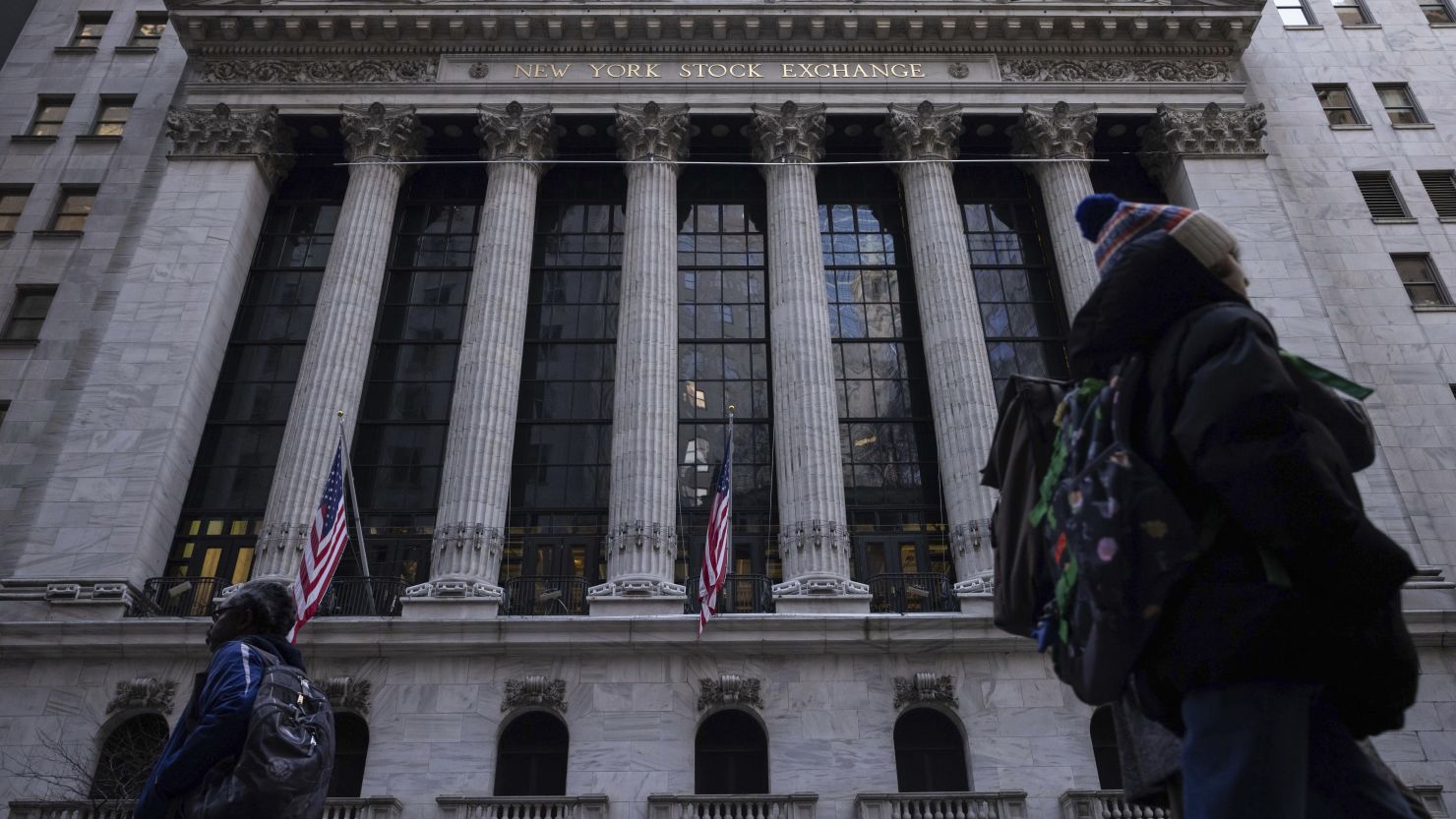A version of this story first appeared in CNN Business’ Before the Bell newsletter. Not a subscriber? You can sign up right here. You can listen to an audio version of the newsletter by clicking the same link.
Dealmaking is big business on Wall Street.
When companies combine, or one company buys another, it creates opportunities for investors and banks to make money by providing advice or financing the transaction.
Investors and employees often get a nice payout as well.
But over the past few years, mergers and acquisitions (M&A), have been hard to come by. Goldman Sachs reported substantial drops in revenue last year as 2023 had some of the lowest M&A activity in a decade.
Dealmaking activity has dried up as executives have contended with recession fears, decades-high interest rates and geopolitical tensions.
Still, Goldman Sachs has been the world’s top M&A adviser for seven consecutive years. The investment bank advised on 235 deals in 2023, totaling more than $670 billion. That made Goldman responsible for nearly a third of the total global M&A advisory market last year.
Stephan Feldgoise, Goldman Sachs co-head of global M&A, spoke to Before the Bell about what comes next for M&A and what we can expect to hear this earnings season.
This interview has been edited for length and clarity.
Before the Bell: You’ve rated 2021 a 10 out of 10 for M&A activity but said that 2023 was a two on that scale. Where are we now?
Stephan Feldgoise: So 2021 through the first half of 2022 was definitely a nine or a 10. But then the second half of 2022 fell off dramatically. This year started off with a number of large transactions – it feels like a four heading to a five.
But there are fits and starts to today’s market. There are weeks where you make a large number of transactions and it feels like one of the “starts.” And then there are “fits” weeks where it’s just very quiet. But I’d say we’re cautiously optimistic.
There do continue to be strengthening signals and trends – if you look at the number of $10 billion-plus transactions, we’ve had a very strong start to the year relative to history. If you track the number of transactions over $500 million for Goldman Sachs, the number of transactions overall for the market is in line with the averages from 2015 to 2019. That feels pretty good. Those were decent markets. They weren’t great, they weren’t bad.
What do the fits and starts mean? Should we be reading into these sporadic bursts of energy?
You have fits and starts because we’ve had some pretty serious risk factors at various periods – whether that be geopolitical, interest rates or certain banks having issues in their securities portfolios – all those things impact the number one driver of M&A which remains CEO confidence and board confidence.
Investors are still supportive, employees are still supportive, board and CEO confidence is the number one factor and there’s been plenty of things that have made people confident and there’s been plenty of things that, at various points in time, have tempered that confidence.
We often hear this term “green shoots” in reference to M&A. It means that there’s a bit of action beginning to peek up from the soil, but when will we see those shoots bud?
A lot of people do use that term. I go back to fits and starts with good underlying trends that momentum builds, but it’s not going to be a straight line. That’s a little different than green shoots, which are plants growing steadily through the spring that you can see, know, feel and predict.
I don’t think it’s going to be a straight line of green shoots growing. But the underlying trend, the multi-period average as we look back over time, we’re going to see that it was steadily building. But there will be periods when it feels like it takes two steps forward, one step back.
Why should people pay attention to M&A? What does it tell us about the economy and markets?
There’s no question that M&A impacts a lot of businesses, lots of consumers in the end, and certainly people who invest in the stock market. You look at the number of public to private leveraged buyouts, and there’s a very substantial number of those. Those are things that retail investors hold. Retail investors are very important shareholders in a lot of these situations and at a lot of these companies. We have an election coming up, elections impact M&A. This certainly will be an election with passion and emotion. That impacts how people think about taking risks.
Jamie Dimon: AI could be as consequential to the economy as electricity
Jamie Dimon believes artificial intelligence will have a huge impact on global business this year.
Dimon, one of the world’s most influential business leaders, said in his annual shareholder letter Monday that while he doesn’t yet know the full effect AI will have on business, the economy or society, he knows its influence will be significant.
“We are completely convinced the consequences will be extraordinary and possibly as transformational as some of the major technological inventions of the past several hundred years: Think the printing press, the steam engine, electricity, computing and the Internet, among others,” the JPMorgan Chase (JPM) CEO wrote in the letter.
The AI explosion has already transformed workplaces across the world and nearly 40% of global employment could be disrupted by AI, according to the International Monetary Fund. Industries from medicine to finance to music have already felt its effects.
Shares of companies associated with the AI boom have soared. Chipmaker Nvidia (NVDA) is up more than 219% over the last 12 months, while Microsoft (MSFT) is up nearly 50%.
JPMorgan, the world’s largest bank by market capitalization, is exploring the potential of generative AI within its own ecosystem, said Dimon. Software engineering, customer service and operations and general employee productivity are all getting AI makeovers.
“Over time,” wrote Dimon, “we anticipate that our use of AI has the potential to augment virtually every job, as well as impact our workforce composition. It may reduce certain job categories or roles, but it may create others as well.”
JPMorgan’s organization now includes more than 2,000 AI and machine learning experts, and the bank recently announced a new position for a chief data & analytics officer that sits on their operating committee.
Dimon also recognized the risks that come with the AI boom. “You may already be aware that there are bad actors using AI to try to infiltrate companies’ systems to steal money and intellectual property or simply to cause disruption and damage,” he wrote.
In January, JPMorgan said it had seen a sizable increase in daily attempts by hackers to infiltrate its systems over the last year, highlighting the escalating cybersecurity challenges the bank and other Wall Street firms are facing.
JPMorgan Chase, the largest US bank by assets, now invests $15 billion a year and employs 62,000 technologists to, in part, help fortify its defense against cyber crimes.
A ticket sold in Oregon has won the nearly $1.33 billion Powerball jackpot
It’s been a long time since there was a big Powerball payout – the last jackpot was won on New Year’s Day at a supermarket in Michigan. Since then there have been 40 consecutive drawings without a winner.
Until last weekend, that is.
A Powerball ticket sold in Oregon won the nearly $1.33 billion jackpot in the wee hours of Sunday morning. That’s the fourth-largest jackpot in the history of the game, according to Powerball.
The lucky ticket holder will have the choice between an annuitized prize or a lump sum payment of $621 million, both before taxes.
Others also won big this weekend. Seven tickets matched all five white balls to win $1 million prizes in Arizona, Delaware, Florida, Iowa, Massachusetts, Michigan and Wyoming, Powerball said.








